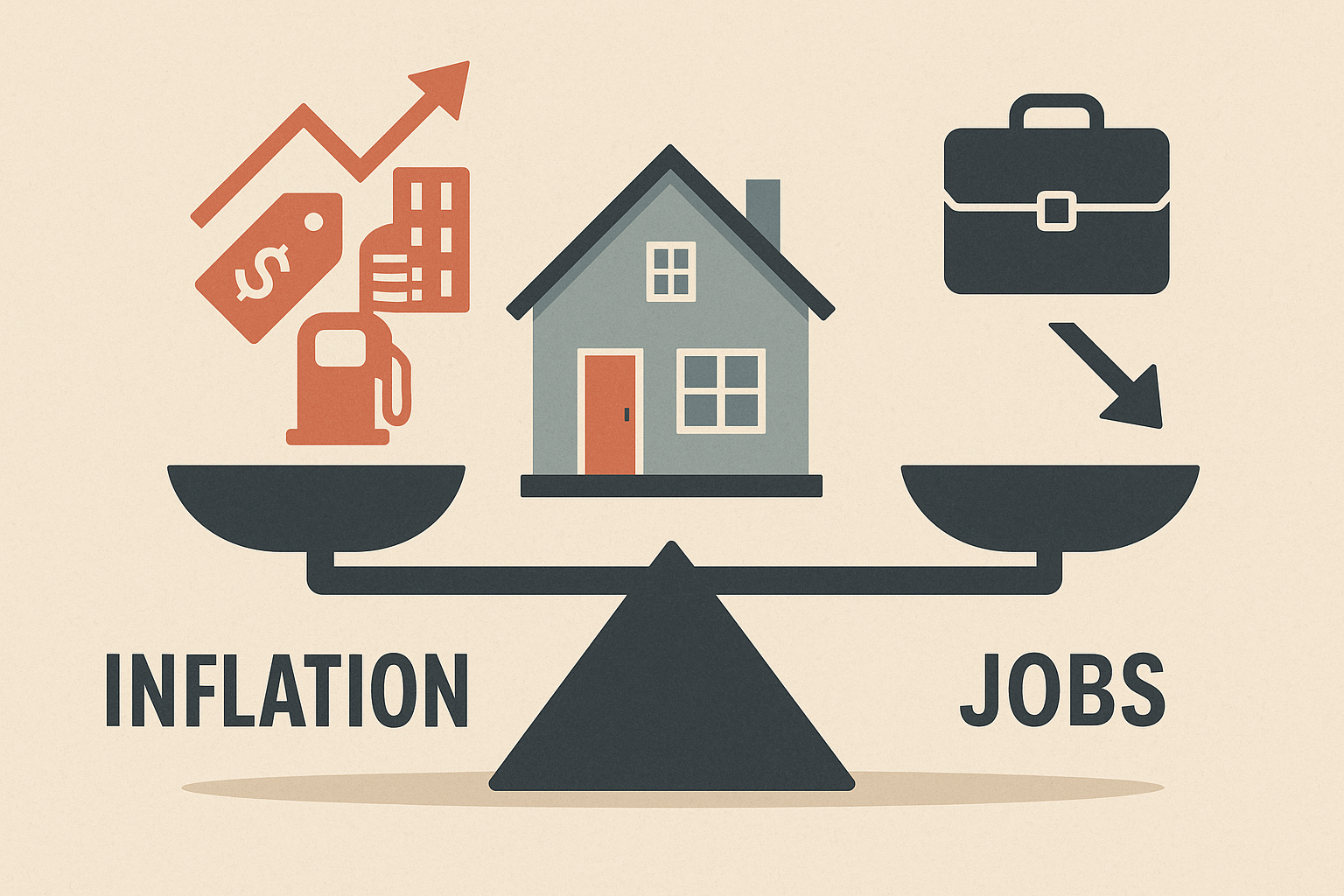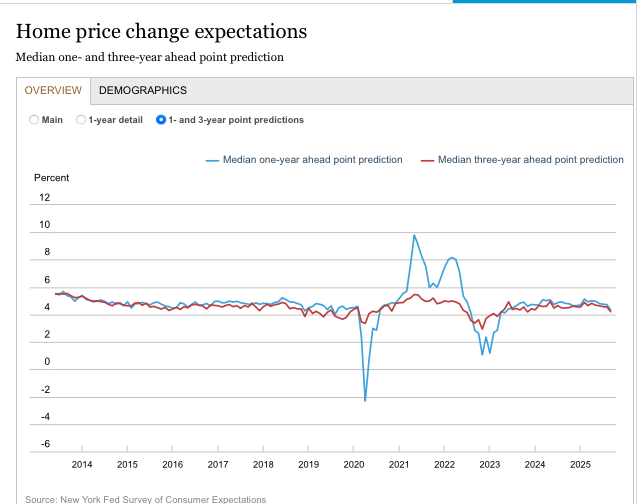
There’s a growing disconnect between how consumers feel about inflation and how they feel about the job market, and it matters whether you’re a homeowner, investor, or a real estate agent trying to read the room. According to the Federal Reserve Bank of New York’s latest consumer expectations survey for September 2025, Americans are bracing for higher short-term inflation while confidence in job security continues to slide.
Inflation expectations ticked up to 3.4 percent over the next year, up from 3.2 percent in August, and even five-year expectations inched higher. That’s a sign that consumers aren’t fully buying into the idea that inflation is under control. Interestingly, the largest jump in short-term inflation expectations came from households earning under $50,000 and those with no more than a high school education. These are the same households most exposed to rising prices, and often the ones fueling demand in the rental market.
If you’re a homeowner, there’s a bit of stability in the numbers. Home price growth expectations held steady at 3 percent for the fourth straight month. That consistency stands out, especially in a market where job concerns are picking up. For investors, that steady home price outlook, paired with growing rent inflation expectations, may signal continued upside in rental property returns.
But the labor data is where things start to look shaky. Consumers now expect just 2.4 percent earnings growth over the next year, the lowest reading since 2021. Meanwhile, the perceived chance of losing a job rose again to 14.9 percent, and the chance that unemployment will be higher next year jumped to 41.1 percent. The job finding rate, if someone does lose work, remains well below its 12-month average.
From a real estate standpoint, this creates a mixed environment. Confidence in home values is holding, credit access expectations improved slightly, and household finances didn’t take a big hit. But people don’t tend to make big life moves when they’re worried about their job or feel like their income might shrink. That hesitation could weigh on buyer activity even if rates come down.
Rent expectations, meanwhile, jumped to 7 percent, the highest in over a year. That spells trouble for affordability, but also opportunity for landlords and investors. If wage growth continues to lag, and job security weakens further, more households may stay in the rental pool longer than they planned.
In short, inflation’s not scaring anyone away from housing just yet, but the job market might. And if these trends continue, 2026 could be defined more by income insecurity than rate anxiety.
Home Price Change Expections

